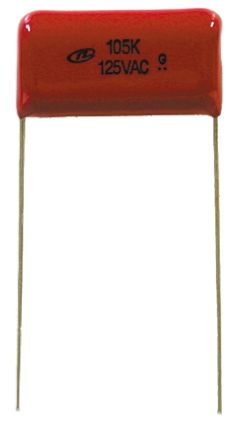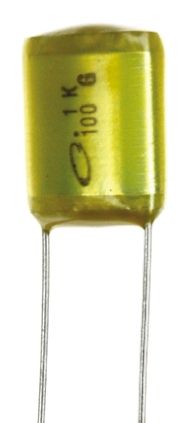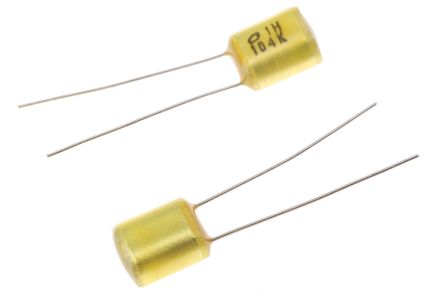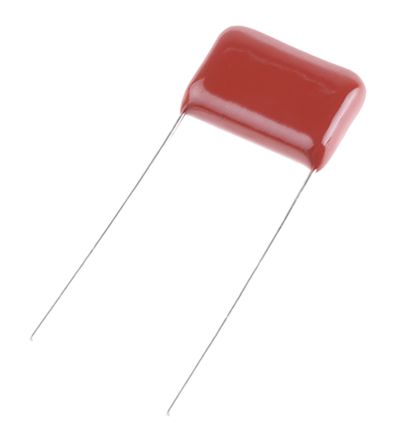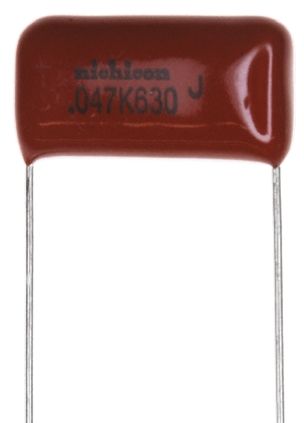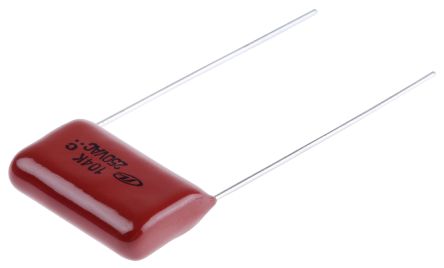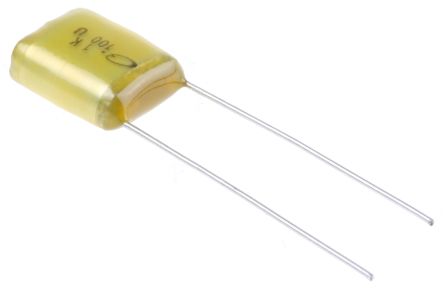- Automation & Control Gear
- Cables & Wires
- Enclosures & Server Racks
- Fuses & Circuit Breakers
- HVAC, Fans & Thermal Management
- Lighting
- Relays & Signal Conditioning
- Switches
- Batteries & Chargers
- Connectors
- Displays & Optoelectronics
- ESD Control, Cleanroom & PCB Prototyping
- Passive Components
- Power Supplies & Transformers
- Raspberry Pi, Arduino, ROCK, STEM Education & Development Tools
- Semiconductors
Nichicon Film Capacitors
Polypropylene (PP) film capacitors are a common capacitor used in electrical equipment. They are made of two pieces of thin plastic film, charged with electrodes as the dielectric. They can replace electrolytic capacitors in applications where the voltage is above 500V.
RS Australia has a great range of capacitors including these polypropylene film capacitors in various capacitance, voltage ratings and tolerances for all your electronics needs.
Types of Polypropylene Film Capacitors
Polypropylene film capacitors come in two main formats, characterised by their dielectric material:
- Film Foil: Two metal foil electrodes are separated by two plastic films.
- Metallised Film: Two thin layers of metallisation are used, with plastic film acting as the dielectric.
The choice of film material for the dielectric layer impacts the capacitor's electrical properties, such as stability and ability to handle high voltage.
Other Types of Film Materials
Besides polypropylene or polyester, film capacitors come in a variety of other film materials:
- Polycarbonate Film: Offers excellent stability and low dielectric absorption, often used in high-precision and high-frequency applications.
- Polyphenylene Sulfide (PPS) Film: Known for its high-temperature resistance and excellent electrical properties, suitable for demanding environments.
- Polytetrafluoroethylene (PTFE) Film: Provides exceptional chemical resistance and low dielectric loss, ideal for harsh conditions and critical applications.
- Polysulfone (PSU) Film: Exhibits good thermal stability and mechanical strength, suitable for high-temperature and high-stress applications.
What are Polypropylene Film Capacitors Used For?
Polypropylene film capacitors have a high tolerance and voltage resistance, which enables their use in a wide range of electric applications.
- Power Electronics: Used in DC-DC converters, inverters, and motor drives for energy storage, filtering, and snubbing.
- Renewable Energy: Essential components in solar inverters and wind turbines, handling high voltages and currents.
- Industrial Automation: Found in control systems, robotics, and machinery for reliable operation and noise suppression.
- Telecommunications: Used in base stations and communication equipment for filtering and signal conditioning.
- Medical Equipment: Employed in imaging systems, diagnostic tools, and patient monitoring devices for precision and safety.
- Audio Equipment: Utilised in high-fidelity amplifiers and speakers for superior sound quality and signal clarity.
How to Select the Right Film Capacitor
From polypropylene to polyester and metallised film capacitors, choosing the right one for your needs can be tricky. To narrow it down, consider the following factors:
- Capacitance Value: Determine the required capacitance value based on your circuit's needs.
- Voltage Rating: Select a capacitor with a voltage rating exceeding the maximum expected voltage in your application.
- Tolerance: Choose a tolerance level that meets the precision requirements of your circuit.
- Temperature Range: Ensure the capacitor's operating temperature range is suitable for your environment.
- Size and Mounting: Consider the physical constraints of your application and choose an appropriate package style.
- Film Material: Select a film material (polypropylene, polyester, etc.) that provides the desired electrical characteristics, such as stability, self-healing, or high-temperature resistance.
Comparison between Polypropylene film capacitors and other capacitors
Polypropylene film capacitors offer distinct advantages compared to other types of capacitors such as ceramic or electrolytic capacitors, making them a preferred choice for various applications.
H3: Key Advantages of Polypropylene film capacitors:
- Stability:
- Film: Maintain capacitance over wide temperature and frequency ranges.
- Ceramic: Generally stable, but can exhibit some capacitance variation with temperature.
- Electrolytic: More susceptible to variations due to temperature and aging.
- Dielectric Loss:
- Film: Exhibit low dielectric loss, minimising energy dissipation and heat generation.
- Ceramic: Can have low to moderate dielectric loss depending on the type.
- Electrolytic: Typically have higher dielectric loss, leading to inefficiencies and potential overheating.
- Voltage Handling:
- Film: Can withstand higher voltages compared to ceramic capacitors.
- Ceramic: Generally have lower voltage ratings than film capacitors.
- Electrolytic: Can handle high voltages, but prone to degradation and shorter lifespan.
- Polarity:
- Film: Non-polarized, can be connected in either direction.
- Ceramic: Non-polarized.
- Electrolytic: Polarised, must be connected with correct polarity to avoid damage.
- Lifespan:
- Film: Typically has a longer lifespan than electrolytic capacitors.
- Ceramic: Generally have a long lifespan.
- Electrolytic: Prone to degradation over time, especially at high temperatures.
- Size:
- Film: Can be larger than ceramic capacitors for the same capacitance value.
- Ceramic: Offer high capacitance in a small package.
- Electrolytic: Can provide high capacitance values in a relatively compact size.
Do Polypropylene Capacitors Have Polarity?
No, polypropylene film capacitors are non-polar, meaning they can be connected in either direction within a circuit without affecting their functionality.
Polarity is a critical factor in certain capacitor types like electrolytics, where incorrect connection can lead to damage or even catastrophic failure. Polypropylene film capacitors are non-polar capacitors which offer greater flexibility in circuit design and simplify installation, reducing the risk of errors.
Your Trusted Film Capacitors Supplier & Manufacturer
RS is a trusted supplier and distributor of film capacitors in Australia from leading brands like Panasonic, Vishay, Wurth Elektronik, and more. To buy capacitors from us, simply visit our product page and filter according to your needs. For more information on our delivery services and fees, please refer to our Delivery page.
Related links
- KEMET C4DE Metallised Polypropylene Film Capacitor ±10% Flange Mount
- KEMET F862 Metallised Polypropylene Film Capacitor 10% Through Hole
- KEMET F862 Metallised Polypropylene Film Capacitor 10% Through Hole
- KEMET F862 Metallised Polypropylene Film Capacitor 10% Through Hole
- KEMET F862 Metallised Polypropylene Film Capacitor ±10% Through Hole
- KEMET F862 Metallised Polypropylene Film Capacitor ±10% Through Hole
- KEMET F862 Metallised Polypropylene Film Capacitor 10% Through Hole
- KEMET C87 Metallised Polypropylene Film Capacitor ±5% Chassis Mount
